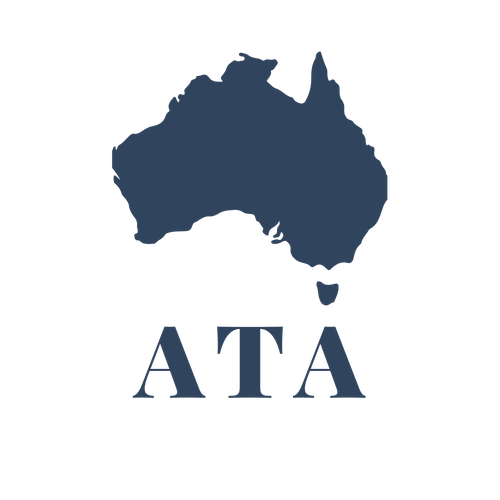“In the aftermath of COVID-19, the Australian economy is ripe for structural reform,” said ATA Policy Researcher, Julia Kokic. “If the federal government heeds Perrottet’s call for tax reform, it would be the triumph of federalism.”
Read MoreToday, Wednesday 1 July 2020, the corporate tax rate for businesses making less than $50 million will drop from 27.5 per cent to 26 per cent. Next year the coalition will further reduce the corporate tax rate to 25 per cent. However, for large employers, the 30 per cent rate will remain in place.
“This is a step in the right direction,” said ATA Policy Director, Emilie Dye. “But with an average OECD corporate tax rate of only 21.4 per cent, we are still far from becoming internationally competitive.”
Read More“A free trade agreement between Australia and the UK will dramatically increase Australia’s ability to recover from the economic downturn caused by COVID-19,” said ATA Policy Director, Emilie Dye. “I am encouraged to see our nation move toward strong trade relationships with a nation we trust instead of sinking into problematic protectionism.”
Read More“Currently, the federal government is spending billions to subsidise the travel industry, but the Balranald shire is forcing hotels to flush those funds down the proverbial toilet,” said ATA Director of Policy, Emilie Dye. “In lieu of new and creative local taxes, the councils should be allowed to keep more of the traditional tax revenue collected in their community.”
Read More“When individuals hit hard economic times they start cutting non-essentials, the government should do the same. Taxpayers do not have the means to spend on 5-star green ratings for government buildings while they still struggle to get through the current global upheaval,” said the ATA Policy Director, Emilie Dye.
Read MoreIt’s been reported to our organisation that NSW Police have been visiting local businesses and telling shop owners & staff members that they must keep a record of name and a mobile number or email address for all staff, dine-in customers and contractors for a period of at least 28 days.
Read More“We don’t need a statue to remember COVID-19; we have a large debt that will dog us for decades to come,” said ATA Policy Director Emilie Dye. “Good leadership requires adding to that debt only when it puts food on bare tables.”
Read More“The increase in illegal tobacco sales proves a certain percentage of Australians are simply addicted to nicotine. While legal tobacco sales have dropped, the total number of sales has remained the same,” said ATA Policy Director Emilie Dye. “Instead of helping vulnerable people quit smoking, we are making them poorer.”
Read MorePolicymakers can use this crisis to pinpoint weaknesses in Australia's tax and regulatory systems and then use the current momentum to push real structural reforms," said ATA Policy Director, Emilie Dye.
Read More“We are funded by individuals across Australia who care about the issues for which we advocate: lower taxes, commonsense regulation, and an end to government waste,” said ATA Policy Director, Emilie Dye. “We are incredibly grateful to the thousands of Australians who make the work we do possible.”
Read More“By working to increase punctual environmental approval, Scott Morrison and the Environmental Minister, Sussan Ley, could save hundreds of businesses from being aborted before they have a chance to sell their first widget.”
Read More“Pulling on the skirts of government and begging public officials to make Google share their toys, only works for so long. The government could have punished automotive manufacturers and we could have kept plodding around in Holden saddles. Instead, Holden started building cars.”
Read More“Brewers and distillers contribute to industries across the economy from barley growers to airlines serving mini-bottles of gin. By cutting one of Australia's most inequitable taxes, policymakers could help thousands of businesses and even more individuals,” said ATA Policy Director Emilie Dye.
Read More“Despite the hundreds of millions taxpayers have spent on the WHO, they failed to issue proper warnings about COVID-19 instead pandering to the Chinese byline,” said ATA Policy Director, Emile Dye. “The WHO has not done the job it was hired to do, and so the Australian government should make them redundant.”
Read MoreThe mixed messaging from the Federal government and the different state government’s about business closures and other measures are causing untold economic harm. One of the most disappointing things we have seen from governments at all levels is a gross lack of communication.
Read More“In times of crisis, we can either move toward more freedom and fix broken systems or we can move toward a more Authoritarian government where the people with the best lobbyists get the handouts,” said ATA Policy Director, Emilie Dye. “Right now the Morrison government is taking the second route.”
Read More"If the government were to divvy up the $189 billion stimulus package between all the people living in Australia, each person, no matter their age, would receive a check for $7560," said ATA Policy Director, Emilie Dye. "That equates to ten times the cash handouts the government is giving to pensioners and other groups."
Read More“Doctors have repeatedly warned that coronavirus puts the elderly most at risk. Yet, ScoMo has recommended our most vulnerable Australians, pensioners and people over the age of 65, take his $750 cash payments and go to shopping centres where they risk coming into contact with someone carrying coronavirus. That is not a cost Australians should be forced to pay.”
Read More"Two weeks barely gives Aussies enough time to meet with their accountant, let alone to build a case to dispute the debt. The ATO has instituted the ideal system for raising revenue, much like a guy holding a molotov cocktail and selling fire insurance.
Read More“In any kind of panic, sound economic policy and the right kind of fiscal stimulus makes all the difference,” said ATA Policy Director, Emilie Dye. “Australia needs to cut taxes and encourage domestic production instead of subsiding every industry that sends lobbyists to Canberra.”
Read More



















